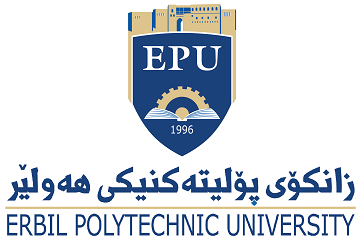Breastfeeding Knowledge among a Sample of Women Attending Maternal and Pediatric Hospital of Soran City
DOI:
https://doi.org/10.25156/ptj.v12n1y2022.pp149-154Keywords:
Breastfeeding, Knowledge, milk, study, levelAbstract
Background and objectives: Breastfeeding is the ideal method suited for the physiological and
psychological needs of an infant and the most vital intervention for reducing infant mortality and
ensuring optimal growth and development of a child. Human breast milk is considered the healthiest
form of milk for children and contains essential nutrients, vitamins, and minerals during the first six
months. The purpose of this study was to find out about breastfeeding knowledge and its relationship
with women’s socio-demographic characteristics.
Methods: A descriptive study was carried out from December 2020 through February 2021, involving
a simple random sample of 100 women who visited the Maternal and Pediatric Hospital in Soran city.
Results: This study revealed that the mean age (M ± SD) was 32.15 ± 7.373 and nearly one-third of
women were illiterate and in the age group 26-30 years. 76% were housewives and 85% indicated
that had a normal delivery type. A good knowledge level is shown about different aspects of
breastfeeding such as the effect of breastfeeding on a baby’s intelligence, the definition of Colostrum,
and the effect of breast milk on producing natural immunity. Concerning breastfeeding practice, the
majority correctly indicated breastfeeding initiation within one hour after birth and continuity on
demand for up to 2 years. Overall knowledge about breastfeeding was good and no statistically
significant association was found between breastfeeding knowledge levels with socio-demographic
characteristics of age, education level, occupation, parity, and type of delivery.
Conclusions: According to study findings overall knowledge about breastfeeding was good and no
statistically significant association was found between breastfeeding knowledge levels and sociodemographic characteristics of participants
Downloads
References
AL-Azzawi, D. S. I., Hussin, D. kareema A., & Shaker, D. N.
Z. (2018). Assessment of Breastfeeding Knowledge
among Mothers in Erbil City. Zanco Journal of Medical
Sciences (Zanco J Med Sci), 14(2 Special), 1–6.
Retrieved from
https://zjms.hmu.edu.krd/index.php/zjms/article/vi
ew/484
Aliyu, A.M., & Shehu, M.N. (2016). Knowledge, Attitude,
and Practice of Exclusive Breastfeeding among
Multigravid Women Attending Antenatal Clinic in
Aminu Kano Teaching Hospital. IOSR Journal of Nursing
Hamad
Polytechnic Journal ● Vol 12 ● No 1 ● 2022 | 154
and Health Science; 5(6): 59-74.
Awatef, M., Olfa, G., Imed, H., Kacem, M., Imen, C., Rim,
C., Mohamed, B., & Slim, B. A. (2010). Breastfeeding
reduces breast cancer risk: a case-control study in
Tunisia. Cancer causes & control : CCC, 21(3), 393–
https://doi.org/10.1007/s10552-009-9471-3
Adams J. M. (2017). Breastfeeding and Infant Mortality in
Indiana: Changing the Culture and Saving Lives: A
Model for Other States. Breastfeeding medicine : the
official journal of the Academy of Breastfeeding
Medicine, 12(8), 456–458.
https://doi.org/10.1089/bfm.2017.0108
Butte, Nancy F, Lopez-Alarcon, Mardia G, Garza,
Cutberto & Expert Consultation on the Optimal
Duration of Exclusive Breastfeeding (2001: Geneva,
Switzerland) . (2002). Nutrient adequacy of exclusive
breastfeeding for the term infant during the first six
months of life / Nancy F. Butte, Mardia G. LopezAlarcon, Cutberto Garza. World Health
Organization. https://apps.who.int/iris/handle/1066
/42519
Neupane, J.E., Kiragu, R., & Kandel, S. (2014). Knowledge,
Attitude, and Challenges of Exclusive Breast Feeding
among Primigravidas: A literature review. Thesis.
Degree Programme in Nursing. Central University of
Applied Sciences.
Picciano M. F. (2001). Nutrient composition of human
milk. Pediatric clinics of North America, 48(1), 53–67.
https://doi.org/10.1016/s0031-3955(05)70285-6
Riordan, J. (2005). Breastfeeding and human lactation. 3rd
ed. Sudbury, Massachusetts: Jones and Barlett publishers
Inc.
Subbiah N. (2003). A study to assess the knowledge,
attitude, practice and problems of postnatal mothers
regarding breastfeeding. The Nursing journal of
India, 94(8), 177–179.
WHO (2013). Acceptable medical reasons for use of breastmilk substitutes. Retrieved from
https://www.who.int/publications/i/item/WHO_F
CH_CAH_09.01
World Health Organization and United Nations Children’s
Fund (2003). Global strategy for infant and young child
feeding. Geneva, Switzerland. Retrieved from
Downloads
Published
How to Cite
Issue
Section
License
Copyright (c) 2022 hiwa abdulrahman, kareem jamal hamad

This work is licensed under a Creative Commons Attribution-NonCommercial-NoDerivatives 4.0 International License.
Authors who publish with this journal agree to the following terms:
1. Authors retain copyright and grant the journal right of first publication with the work simultaneously licensed under a Creative Commons Attribution License [CC BY-NC-ND 4.0] that allows others to share the work with an acknowledgment of the work's authorship and initial publication in this journal.
2. Authors are able to enter into separate, additional contractual arrangements for the non-exclusive distribution of the journal's published version of the work (e.g., post it to an institutional repository or publish it in a book), with an acknowledgment of its initial publication in this journal.
3. Authors are permitted and encouraged to post their work online (e.g., in institutional repositories or on their website) prior to and during the submission process, as it can lead to productive exchanges, as well as earlier and greater citation of published work (See The Effect of Open Access).






 Polytechnic Journal ; A Periodical Open Access Scientific Journal
Polytechnic Journal ; A Periodical Open Access Scientific Journal